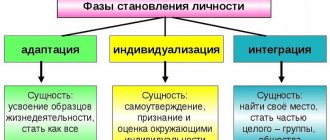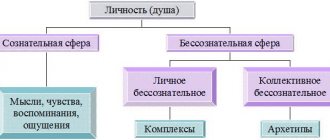The concept that is covered by the word “socialization” includes the process of connecting with society. The whole essence of this phenomenon lies in the individual’s assimilation of values, roles and norms that are approved by the majority of people. The concept of “socialization” is opposed by two others. Their names are formed by adding prefixes. These are “desocialization” and “resocialization”. The first of these means processes in which a person internalizes antisocial and antisocial values and norms. At the same time, a person acquires negative attitudes and behavioral stereotypes. This leads to destabilization and deformation of public relations.
Mechanism of desocialization
Why does a person choose an antisocial path? At the initial stage, this happens unconsciously. Children and adolescents adopt the behavior patterns of those adults who lead an antisocial lifestyle. In doing so, they satisfy their desire to gain approval from this negative microenvironment. Moreover, in their opinion, this way they become adults faster. In this case, the negative microenvironment exercises social control over the individual. In this case, adolescents or children receive praise, approval and support if they have taken the path of antisocial behavior. Hard work, mercy and kindness in such an environment are simply ridiculed.
The entire process of desocialization sometimes occurs spontaneously. However, in some cases it is carried out purposefully. An example of this is instilling criminal behavior in adolescents to involve them in illegal activities. In this case, the mechanism of punishment and rewards is widely used.
Resocialization and total institutions
A total institution is an institution in which a person is completely immersed in an environment that controls all aspects of daily life under a single authority. The goal of a total institution is resocialization in order to completely change the way of life and being of a person and/or a group of people. Prisons, the military, and hostels are examples of institutions in general.
Within the whole institution, resocialization consists of two parts. First, the facility staff attempts to destroy the identity and independence of the residents. This can be achieved by forcing people to give up their possessions, have identical haircuts, and wear standard clothing or uniforms. It can also be achieved by subjecting people to humiliating and degrading processes such as fingerprinting, strip searches, and giving people serial numbers for identification instead of using their names.
The second phase of resocialization is the attempt to create a new identity or sense of self, which is usually achieved through a system of reward and punishment. The goal is conformity, which is achieved when people change their behavior to meet the expectations of an authority figure or larger group. Compliance can be demonstrated through incentives such as giving individuals access to a television, book, or telephone.
Updated by Nicki Lisa Cole, Ph.D.
Correction path
Resocialization is applied to an individual who has taken an antisocial path of behavior by various state institutions of social control. This concept means a certain type of change that occurs in a person, which allows him to adopt a type of behavior that is radically different from the previous one. In this case, the prefix “re-” means the destruction and dismantling of negative values and norms that have been internalized by the individual. During this process, a person accepts those positive concepts that are approved by society.
Resocialization in the family
The family is the first environment in which an individual is socialized. Moreover, in it he not only acquires the first skills and knowledge, but also repeatedly develops new ones, getting rid of old ones. Socialization depends on what kind of atmosphere reigns in the family and the methods of education that exist in relation to children. The family is the first institution that teaches the child the main and important social rules and norms of life to which he must get used.
As the child grows up, he is resocialized several times. The family takes part in this. Resocialization is influenced by the worldview of parents, their methods of education and communication with the child, the level of trust and mutual support. In dysfunctional families, children are usually less socialized and adapted to life than in prosperous ones.
Use of the term
The concept of “resocialization” is quite widely used not only by representatives of social psychology and sociology. This term is also mentioned by lawyers and teachers. It concerns social measures that are applied by society to people who have taken the criminal path.
In pedagogy, resocialization is the acquisition of new skills and values that should replace the old ones that are outdated or insufficiently learned. This entire process is directed towards individuals with various types of deviant behavior. The goal pursued by resocialization is the restoration of lost social status, as well as the reorientation of negative attitudes. The solution to this problem lies in the positive attitude of the pedagogically oriented environment towards the individual. “Resocialization of convicts” is a term used by lawyers when solving problems of penal policy. It applies to young people. It is noted that young subjects have a higher ability to resocialize than representatives of the older generation. For young people, this term may not mean the process itself, but its result.
Bottom line
Desocialization means a person’s refusal to accept socially accepted norms and rules in order to go to another, antisocial environment. This can happen either voluntarily or forced. For the most part, a person resorts to this form of development when he is unable to cope with the harsh living conditions in which he finds himself. As a result, he becomes maladapted, that is, an outcast from society.
If an adult must be responsible for his own decisions, then children and adolescents are victims of desocialization. They simply found themselves in an environment that was not conducive to their normal upbringing and development, which is what public organizations should deal with and eliminate.
Source: psymedcare.ru
Socialization.
Socialization is the process of an individual acquiring social qualities, skills, and abilities that allow him to live and work in society.
(See material HERE).
Desocialization.
Desocialization - (the Latin prefix de means the absence or elimination of something) is the loss of a person for some reason of social experience.
The degree of desocialization can be of different levels : from mild disorientation in a certain situation to a complete loss of connection with the social environment.
There are many reasons : a long-term illness that isolated a person from his usual environment for a long time, extreme situations (for example, being in a concentration camp or mistakenly in a mental hospital), sometimes service in hot spots can affect this, and this is a mental illness.
Who carries out resocialization?
The entry of an individual onto the path of antisocial development is recorded by institutions that exercise social control. At the same time, they can also take appropriate resocialization measures. This process involves educational, military and labor groups, schools and families, public organizations, as well as law enforcement agencies represented by their preventive structures. Often, the resocialization of an individual is carried out without imprisonment. However, if a person commits a socially dangerous act, more stringent measures may be taken against him. In this case, by a court verdict, he is sent to prison. At the same time, resocialization is a certain stage designed to restore the socially useful connections of the individual with society. During this process, asocial roles and behavior must be destroyed, and positive patterns of social values must be consolidated. The special institutions that carry out the process of resocialization in this case are the following:
— educational and labor colonies where minors are kept;
— corrective labor colonies;
- prisons.
The main task that these social institutions are designed to solve is the re-education and correction of convicts, that is, resocialization.
Relevance of the issue
The topic of resocialization is closely interconnected not only with criminal actions. A similar process is carried out in relation to people from other categories . An important role in the development of modern society is given to the process of resocialization of people with addiction, personality disorders and mental illnesses, as well as in relation to people under severe stress due to natural disasters, terrorist attacks or road accidents.
Desocialization and resocialization are two sides of the same process: adult, or continued, socialization
People in the above categories need more than just social support. An important component in the process of resocialization is psychotherapy, auto-training and psychotherapeutic correction. In order to speed up adaptation in society, emotional stress should be eliminated.
Vivid examples of resocialization are demonstrated by such municipal services as the Church, the Salvation Army and charitable public organizations. However, such municipal services operate only in foreign countries. On the territory of the Russian Federation, specialized centers are engaged in social rehabilitation. Today, the issue of developing such centers is highly relevant, since the percentage of people in need of help is only increasing every year. Every person throughout his life is faced with the need for social adaptation . In order to achieve the desired result in this process, it is very important to relieve psychological stress and eliminate internal conflicts.
The severity of the problem
The topic of resocialization is associated not only with those who have committed criminal acts. It also applies to other categories of people. Thus, the resocialization of drug addicts, patients, as well as those who have experienced stress during natural disasters, military operations or accidents is of great importance for society.
Such people need not only social assistance. To carry out the normal process of resocialization, psychotherapy and psychocorrection (auto-training, etc.) will be needed. Social adaptation of such people should not be expected unless the emotional tension of the individual is relieved.
Resocialization work
Social rehabilitation in Western European countries is carried out by relief societies and various foundations, the Salvation Army, the Church, etc. Similar work in Russia is carried out by rehabilitation centers. In this regard, there is a need for the accelerated development of a humanistic psychology that would be focused on the needs of this social practice.
It is worth saying that the need for social adaptation exists for almost every person. Moreover, positive results appear only when emotional stress is relieved.
Psychological addictions and getting rid of them through resocialization
The psychological dependence of alcoholics , drug addicts, and gambling addicts has not only a social background. In many ways, it is a consequence of injuries received by a person during his life. Having pulled the addicted person out of his usual environment, the Rehabilitation Center and its staff take on the difficult task of providing their patients with the opportunity to return to normal life without heavy psychostimulants. But it’s not enough to just stop taking prohibited and dangerous substances, you also need to adapt to new living conditions in society.
The more intense the interaction with the outside world during the period of resocialization, the more successful the procedure for integrating a person into new living conditions will be. It is worth paying attention to the fact that psychologists help to vary the intensity of communication with the surrounding society at this stage. Depending on the success of a particular patient, options are offered for partial residence in the Center, with work outside of it, or any other acceptable methods, including the use of special social dormitories for those who are already halfway through recovery from an addiction. We invite you to take a step towards a life without addiction now or help your loved one do this. Call and sign up for a consultation!
Collective support is an incredibly important part of the rehabilitation program. It is at this stage that you can be inspired by the positive results of those who are also trying to return to normal life in society or have already been able to do so. Group discussion of successes and failures not only provides the necessary support, but also provides opportunities for effectively finding your own path in life. It is at this stage that you can find hobbies and new friends, form a social circle that will provide optimal conditions for completely refusing to return to harmful habits. Once formed, psychological dependence will not disappear on its own. You can and should work to get rid of it, achieving the desired results both in individual sessions with specialists and in a group, side by side with other people who have similar difficulties.











